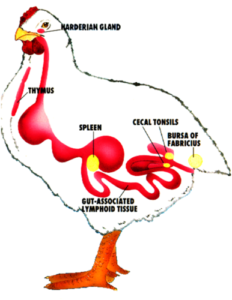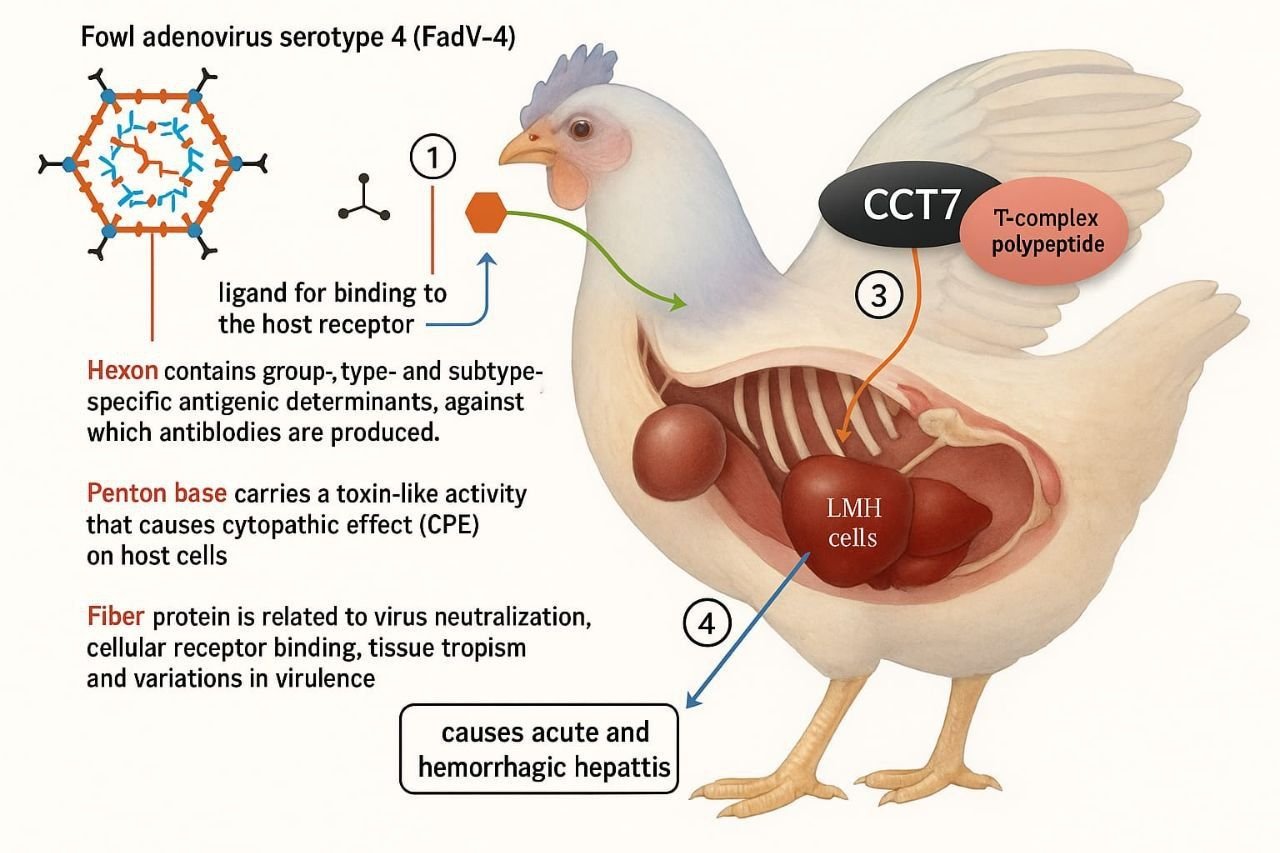Immunosuppression in Birds

Dr. Hoger Omar Mohamed
Specialist in Poultry Diseases and Breeding
5/8/2024
Immunity in birds is divided (in a simplified way) into:
- Natural immunity, which that some birds are free from certain diseases. Such as birds not being infected with rinderpest.
- Age-related immunity, which means that there are some diseases that affect birds only at a specific age. For example, there is no infection with leukosis at young ages or infection with Gambaro at ages over 40 weeks.
- Acquired immunity, which is in two forms, the first form, is transferable immunity, such as the immunity that is transmitted from the mother to the fetus MDA. The second form, is immunity resulting from exposure to a vaccine or infection.
This is very simplified, but the goal of this article is immunosuppression, as immunosuppression is in two forms: transferable from the mother to the fetus, such as some contagious diseases, or due to stress.
Stress: It is defined as the pressure exerted on the bird, whether from an external or internal source, and thus will negatively affect the bird’s performance and immunity. Stress is divided into:
First: Environmental stress: This means exposing birds to stress related to the external environment, including high temperatures, high and low relative humidity, exposure to cold, transporting birds, cutting beaks, and other reasons.
Second: Nutritional stress: This includes exposing birds to hunger and thirst or providing a feed that is deficient in one of the basic materials such as vitamins or minerals and essential amino acids, that enter into some basic reactions. Such as the Krebs cycle, and its deficiency affects immunity directly or indirectly.
Third: Pathological stress: This includes all viral diseases, bacterial diseases, coccidiosis, and feed toxins.
I would like to talk here about the most important diseases that lead to severe immunosuppression, which are: anemia in birds, influenza, and infection with toxins in the feed.

A specialist may ask me why is bird anemia or infectious anemia considered more immunosuppressive than Gamboro, for example??? .
The answer is:
Mareck & LL affect T cell
IBD affect B cell
ND + IB affect macrophages & lymphocytes
But infectious anemia causes severe changes in the bone marrow and spleen, as well as the destruction and demolition of (T & B) cells, and thus severe suppression of the immune system.
Influenza causes in more than one way to cause immunosuppression, including: plasma, red & white blood cells cells & macrophages
All of this leads to the disruption of the immune system and increases the severity of viral infections.
Feed toxins: The direct effect is on (T & B) cells with atrophy of the bursa, spleen and thymus gland with an effect on the effectiveness of macrophages and cell mediated immune response and an indirect effect on the immune system, by reducing the absorption of vitamins and directly affecting them such as vitamin (E), which plays a major role in the functioning of the immune system.
Conclusion:
- Biosecurity must be given a great attention, because it plays a major role in reducing or increasing the spread of disease problems.
- Investigating the presence of infectious anemia, and if it exists, mothers must be vaccinated against it with modern programs and not with the old traditional programs.
- Choosing good vaccination programs and vaccines against influenza.
- Using antitoxins of good quality and in a quantity that ensures the effectiveness of the product and reduces the percentage of feed toxins in the feed.
- Using immune boosters periodically because of their important role in enhancing the immunity of birds.
- Pay attention to good management and reduce stress on birds.




شكرا د.هوكر على الشرح المبسط الواضح